Advertisement
Pass/Fail
As Charter Schools Narrow Achievement Gaps, Some Rethink Strict Discipline
Resume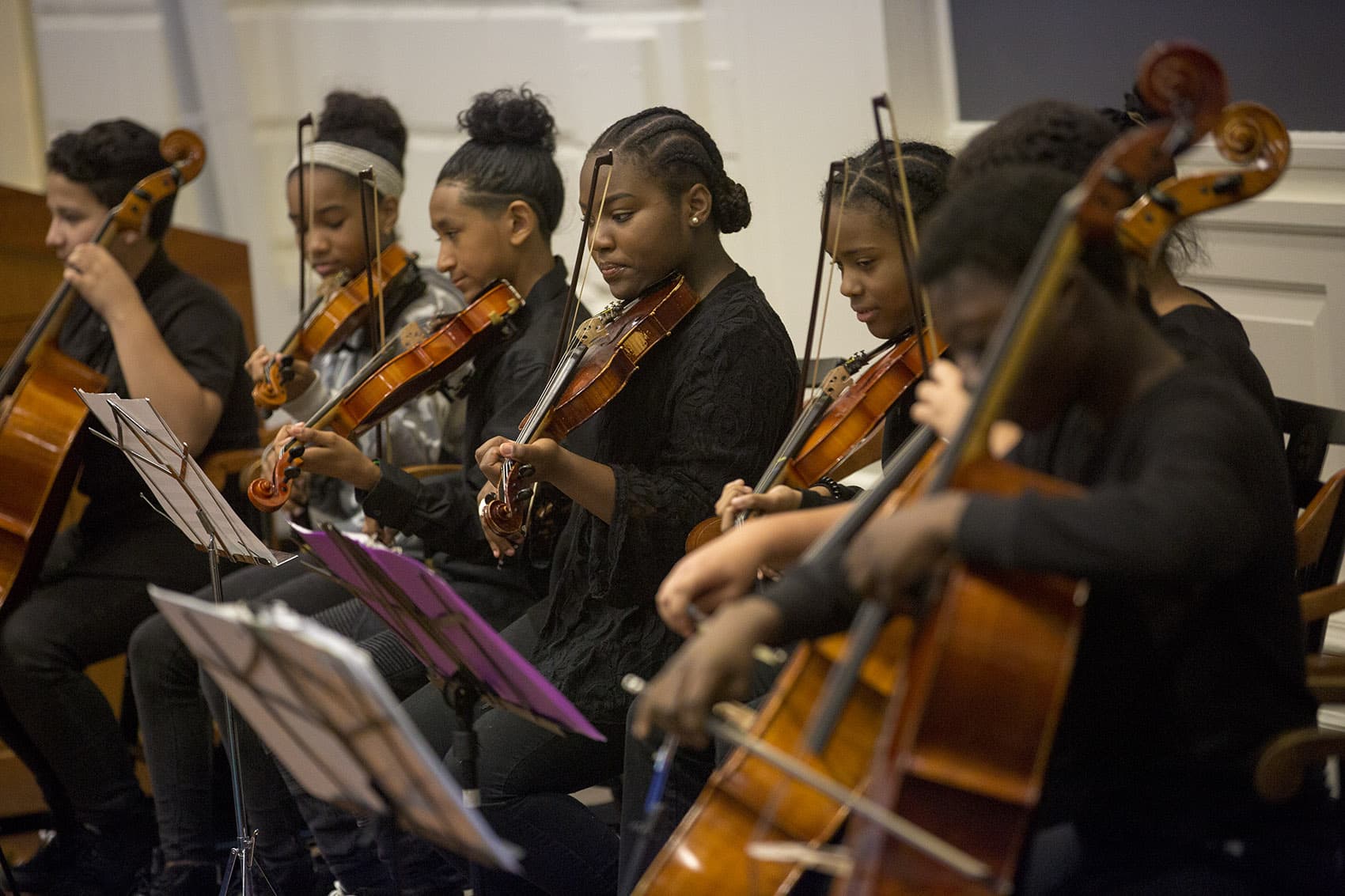
As charter schools have experimented over the last 20-plus years, they have made some headway in closing the academic achievement gap — the disparity between certain groups of students such as white students and students of color. That's part of the reason why thousands of parents of minority students are clamoring to get their kids in.
Somerville mom and education activist Keri Rodrigues is one of those parents. She has three sons. Two are stuck on long wait lists, unable to get into schools she believes would serve them better.
“It’s crushing," Rodrigues said. "You’re wondering whether or not you should get an extra job at Dunkin' Donuts working overnight so you can send them to private school, so these kids get a shot!”
Rodrigues runs Massachusetts Parents United, a group that supports charter schools, among other things. She's an aggressive promoter of these schools, in part because of the MCAS scores. She points specifically to the top 10 schools in Boston where English learners perform best.
"Seven out of the 10 of them are charter schools," explained Rodrigues. "So our charter schools in Boston actually know how to get this done."
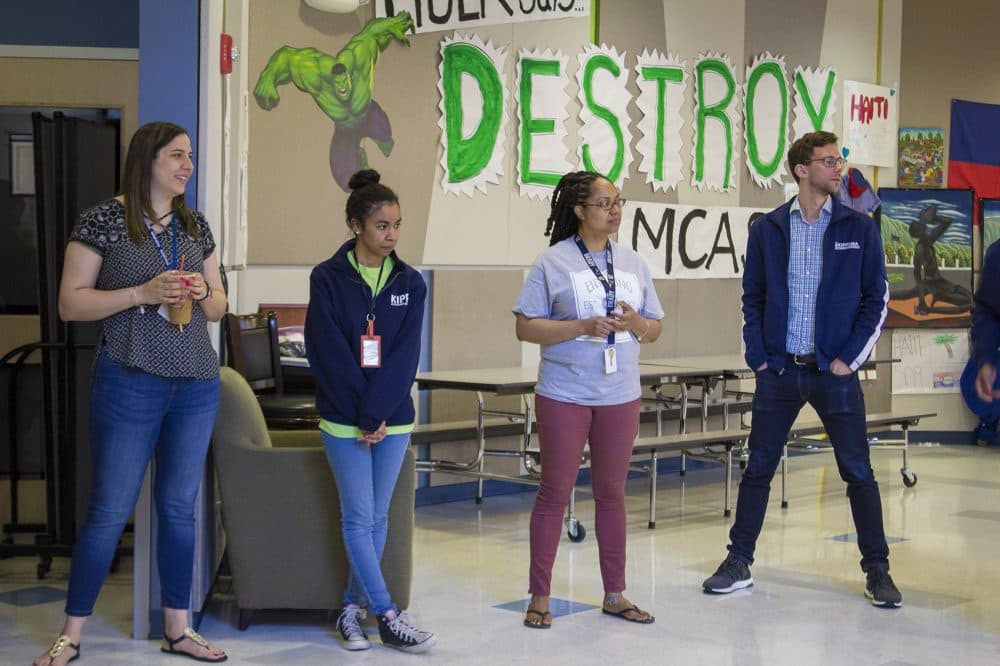
Statewide, the picture is less clear. English learners at charter schools actually did worse on the English MCAS, according to a prominent study a few years ago.
You see the same pattern with other kinds of students facing their own achievement gaps, like African-American and low-income students. Both demographics score better in charter schools, at least in Boston.
"I think one of the main contributions of public charter schools is we’ve been able to prove that demographics are not destiny," said Tim Nicolette, the executive director of the Massachusetts Charter Public School Association. Like many charter school officials, he loves to share this kind of data.
"All kids can learn and can succeed at high levels if they are in an environment of high expectations and also high support," Nicolette added.
No Excuses
When Nicolette talks about high expectations, some of the schools he represents — especially the ones with high test scores — also have significantly higher rates of discipline.
Hence the phrase you hear all the time when people talk about charter schools: the so-called "no excuses" model. KIPP Massachusetts is part of a national network of charter schools that followed that model at one point.
"If you go back to 2004, you might have seen silent lines in the hallway all the time," explained Caleb Dolan, KIPP Massachusetts executive director. "And you might see a lot of silent time in the classroom."
He admits those high expectations on kids' behavior might have been too hard on them. Over time, Dolan said school leaders started hearing from graduates who made it to college, and many said they found themselves overwhelmed by all the freedom they had there.
“They would come back and tell us, 'You guys, we need to have a little freedom to screw up. Because you were managing time and energy so intently that we never had to navigate on our own,' ” Dolan recalled hearing.
The “no excuses” brand of charter schools has also come under the microscope of the media too. Over the last few years, several news reports have published revealing instances of teachers berating young students, and strict bathroom break policies with few, if any, trips allowed.
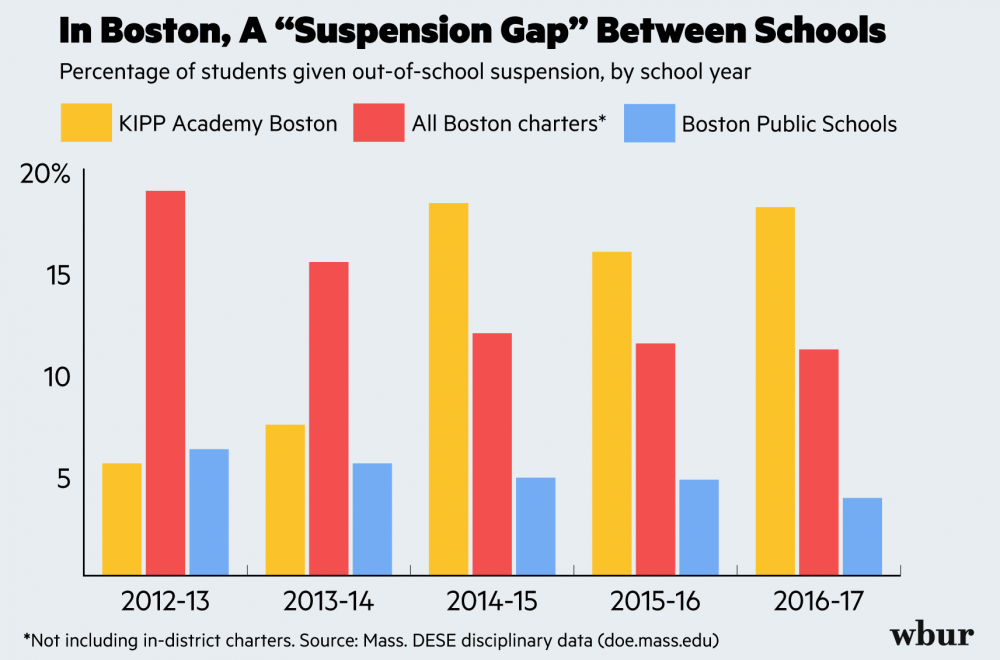
Over time, some critics have argued there is a racial component to this pattern. While many charter schools enroll students of color who earn above-average test scores, those students are also disciplined at much higher levels than their peers in traditional district schools.
Last school year, for example, state data show that there were 94 instances of out-of-school suspension at KIPP Academy Boston, which amounts to about 18 percent of the school's population.
Those are much higher than the statewide totals. There were over 27,000 instances of out-of-school suspensions, representing about 3 percent of all K-12 public school enrollment in Massachusetts.
KIPP's Dolan says that this year, the suspension rates are about half of what they were a year ago. State data is not available for this year yet.
Charter Schools Evolving
When it comes to that silent time, that's changing too. Today, KIPP hallways are lively. When kids enter the KIPP Academy in Boston at the start of the school day, they're greeted by pop music and get high-fived by teachers and staff.
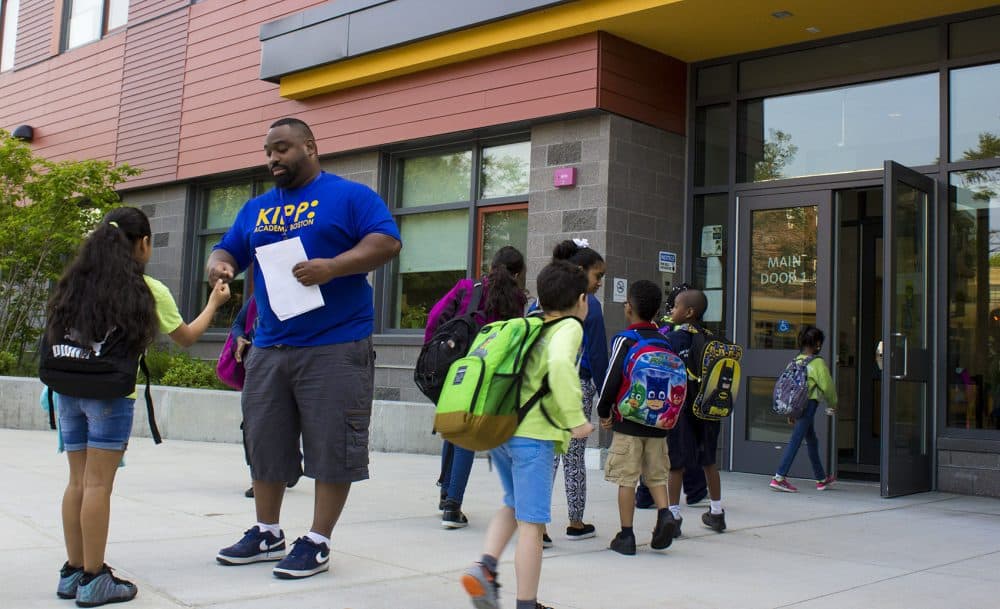
But those shifts aren't good enough for some charter school critics.
"I’m waiting for them to say very publicly, 'we were wrong' and these were racist policies," said Linda Nathan, a consultant for the Conservatory Lab Charter School, in Boston. Despite her involvement with a charter school, she’s a harsh critic of how the charter school movement has evolved in Massachusetts since education reform efforts began in 1993.
"This was part of an ed reform bill to encourage innovation for teachers," said Nathan. "There was never a sense that charters were here to stay forever."
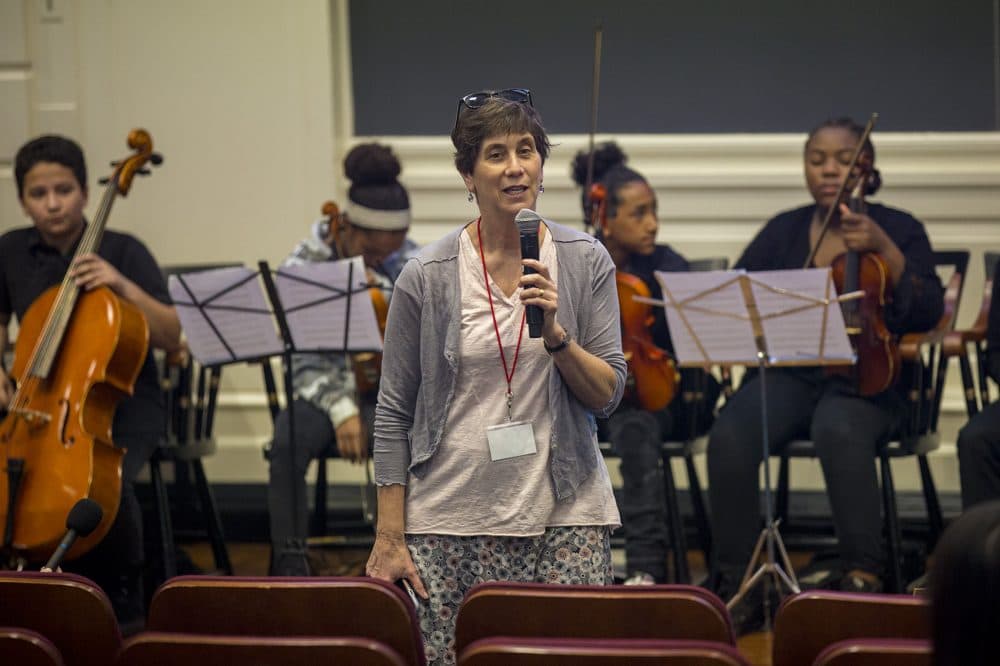
Nathan said she supported opening charter schools in the beginning, because she believed their ability to experiment would be good for the whole public school system. Charter schools would try something, and if it worked, the idea could be shared with district schools that are, inevitably, less flexible.
"If you think about the original charters, it was meant to be really out-of-the-box kinds of schools," she said.
Over the years, practices like extended learning time, intensive tutoring and even dress codes have trickled over from the charter world to district schools.
But the charter school sector is changing, too. After a big defeat at the polls two years ago, a few charter school faculties in Massachusetts have voted to unionize — chasing the higher salaries that district teachers make.
And the board over at the Conservatory Lab Charter School has indicated it wants to rejoin the Boston School District. So there’s some evidence that the collaborative relationship between charter and district schools that the '93 reformers imagined could come back.
Then again, as long as there’s an MCAS test — and a de facto competition to post the highest score — there will always be a little tension between the two worlds.
Join our Facebook group to continue the conversation with other parents, teachers, administrators and WBUR's education reporters.
This segment aired on June 20, 2018.

